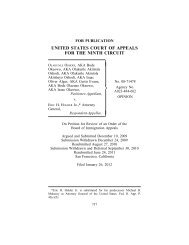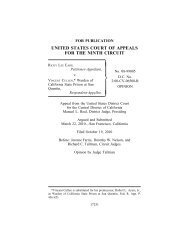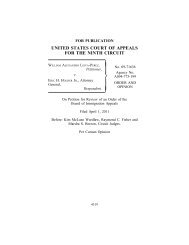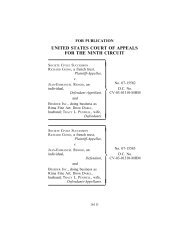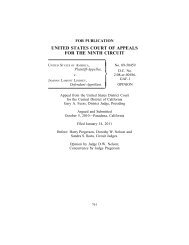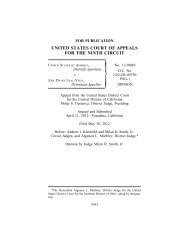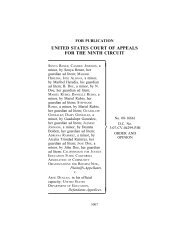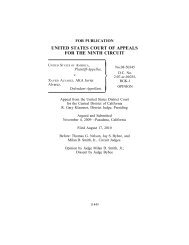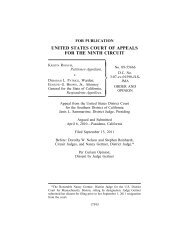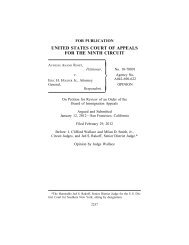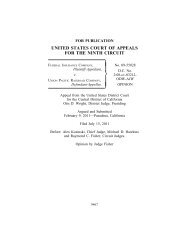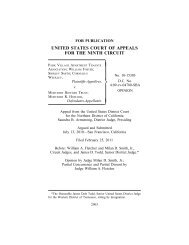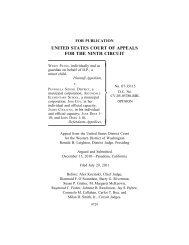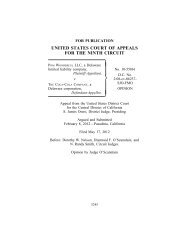n.b. v. hellgate elementary - Ninth Circuit Court of Appeals
n.b. v. hellgate elementary - Ninth Circuit Court of Appeals
n.b. v. hellgate elementary - Ninth Circuit Court of Appeals
You also want an ePaper? Increase the reach of your titles
YUMPU automatically turns print PDFs into web optimized ePapers that Google loves.
12174 N.B. v. HELLGATE ELEMENTARY<br />
lants’ expert witness, Dr. Ilene Schwartz, testified that children<br />
with autism needed to receive year-round services. She<br />
also testified that summer programming was important for<br />
consistency and continuity. Another <strong>of</strong> Appellants’ witnesses,<br />
Dr. Kelker, did not agree that every child with a form <strong>of</strong><br />
autism needs ESY services. Dr. Kelker did opine that failure<br />
to provide ESY denied C.B. a FAPE because the student’s<br />
language skills were just beginning to emerge. But Dr. Kelker<br />
had never met or observed C.B. and had no direct knowledge<br />
<strong>of</strong> C.B.’s language skills.<br />
Members <strong>of</strong> the IEP team testified on behalf <strong>of</strong> Hellgate<br />
that C.B. was making steady progress. For example, Ms. Frost<br />
testified that C.B. did not show regression during school<br />
breaks. The hearing <strong>of</strong>ficer found that “[t]he data collected<br />
done [sic] by the District staff regarding regression indicated<br />
he did not show regression which could not be recouped, and<br />
in some cases showed no regression at all.”<br />
The hearing <strong>of</strong>ficer also concluded that the testimony by<br />
Hellgate personnel, who had a daily relationship with C.B.,<br />
was more persuasive than that <strong>of</strong> Appellants’ witnesses,<br />
whose opinions were predominantly based on impersonal file<br />
reviews. The IDEA provides, in pertinent part, that “the court<br />
shall receive the records <strong>of</strong> the administrative proceedings,<br />
shall hear additional evidence at the request <strong>of</strong> a party, and,<br />
basing its decision on the preponderance <strong>of</strong> the evidence, shall<br />
grant such relief as the court determines is appropriate.” 20<br />
U.S.C. § 1415(i)(2)(B) (1999). As a result, the court may give<br />
less than the usual deference to the administrative hearing<br />
<strong>of</strong>ficer’s findings <strong>of</strong> fact. Vashon, 337 F.3d at 1126. Due<br />
weight must be accorded to the administrative findings, and<br />
the court determines how much weight to give to these findings<br />
and to any additional evidence it deems appropriate to<br />
admit. Id. at 1127. We define “due weight” as follows: “The<br />
court, in recognition <strong>of</strong> the expertise <strong>of</strong> the administrative<br />
agency, must consider the findings carefully and endeavor to<br />
respond to the hearing <strong>of</strong>ficer’s resolution <strong>of</strong> each material



